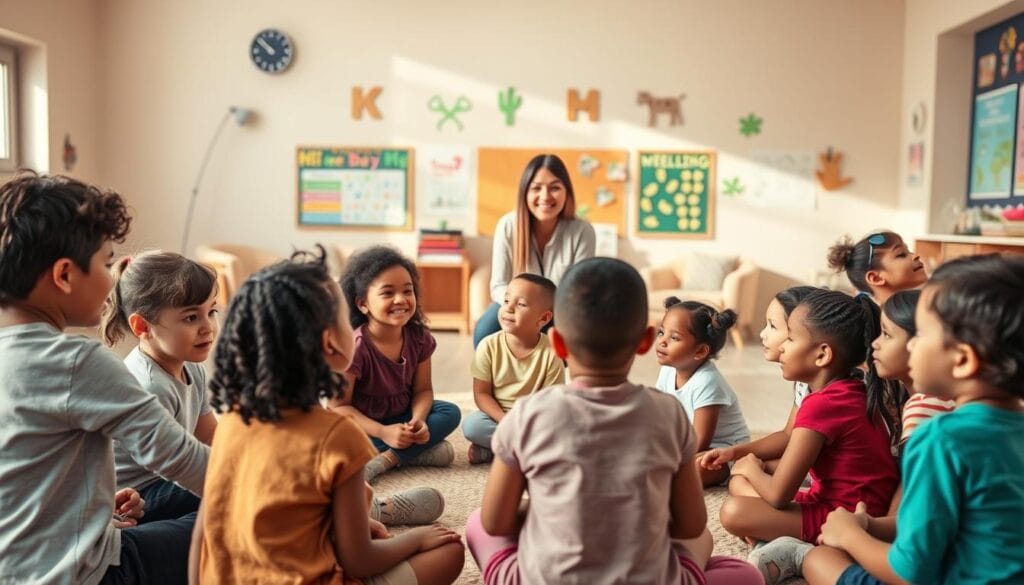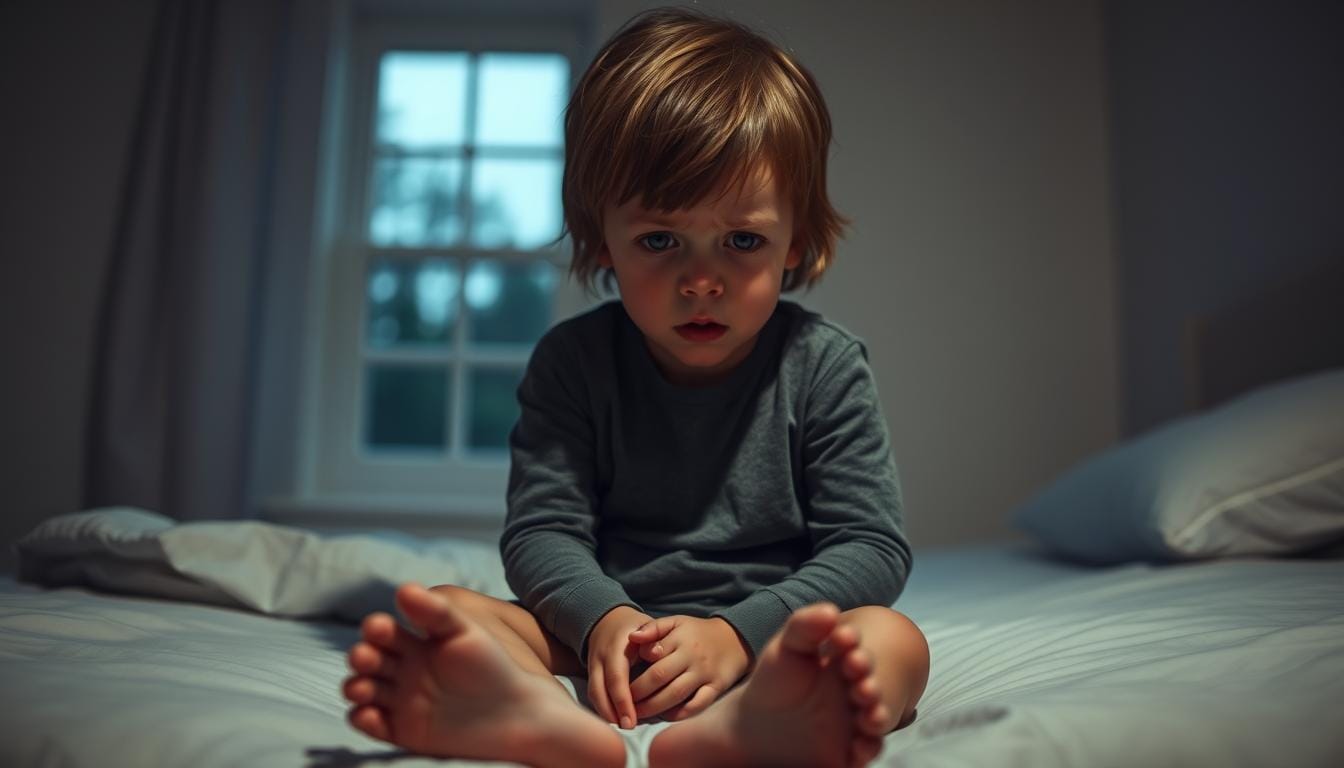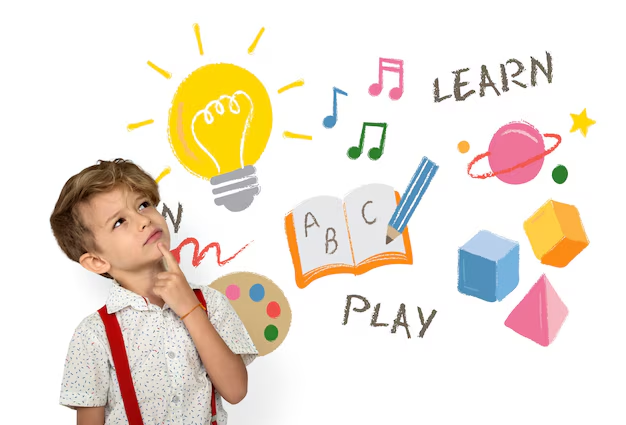Protect Kids from Stress & Anxiety: Expert Tips
Are you worried about the growing mental health problems in American kids? As a parent, it’s tough to keep your kids away from stress and anxiety. But, with the right advice, you can make a safe space for their mental wellbeing.
It’s key to know about childhood stress and anxiety. By spotting the signs, you can help manage your child’s mental health.
Key Takeaways
- Recognize the signs of stress and anxiety in children
- Create a nurturing environment that promotes mental wellbeing
- Implement expert tips and strategies to manage childhood anxiety
- Understand the importance of addressing mental health issues early
- Develop healthy habits to reduce stress and anxiety in kids
The Rising Mental Health Crisis Among American Children
American children are facing a severe mental health crisis. Modern life and recent global events have increased stress and anxiety in kids. This situation needs urgent attention.
Current Statistics on Childhood Stress and Anxiety
Recent studies show a worrying trend: more children are dealing with stress and anxiety. The American Psychological Association found that many kids face stress that affects their daily lives. Here are some key statistics:
| Year | Percentage of Children Experiencing Stress | Reported Anxiety Disorders |
|---|---|---|
| 2018 | 45% | 11% |
| 2020 | 55% | 15% |
| 2022 | 60% | 20% |
Impact of Recent Global Events on Children’s Mental Health
Global events like the COVID-19 pandemic have deeply affected children’s mental health. Isolation, fear, and disrupted routines have made anxiety and stress worse. Children are especially sensitive to these emotional challenges, and the effects can last a long time.
Expert Insights on the Growing Concern
Child psychologists stress the importance of acting early to manage stress and anxiety. Parents and caregivers are key in spotting early signs and offering support. By understanding the causes and symptoms, we can help create a better environment for our kids.
Understanding Childhood Stress and Anxiety
Stress and anxiety affect kids in special ways. It’s important for parents and caregivers to understand this. This helps them support kids better.
How Stress Affects Children Differently Than Adults
Children’s brains are still growing. They can’t handle emotions as well as adults. This makes stress hit their mental health harder.
Unlike adults, kids often can’t say how they feel. This makes it tough for them to deal with anxiety.
Common Triggers of Anxiety in Modern Childhood
Today’s kids face many things that can make them anxious. These include academic pressure, social media, and family stress. These can be really tough for kids.
Teaching healthy coping skills for children is key. It helps them handle these challenges better.
The Connection Between Stress and Depression in Children
Stress and depression in kids are linked. Chronic stress can lead to depression. It’s crucial to tackle stress early.
Using self-esteem building for kids and techniques for helping children cope with anxiety is vital. These methods help prevent depression.
| Trigger | Effect on Children | Coping Strategy |
|---|---|---|
| Academic Pressure | Increased anxiety and stress | Teaching time management skills |
| Social Media | Comparison and decreased self-esteem | Limiting screen time and promoting offline activities |
| Family Stress | Feelings of insecurity and anxiety | Fostering open communication and emotional support |
Recognizing the Warning Signs
It’s important to know the signs of stress and anxiety in kids. This helps create a calm and caring space for them. By spotting these signs early, you can help your child’s mental health.
Physical Symptoms of Stress in Children
Stressed kids might have headaches, stomachaches, or feel really tired. These are early warning signs of stress. It’s crucial to deal with these issues quickly to stop them from getting worse.
Behavioral Changes That Signal Anxiety
Anxious kids might pull back or get more aggressive. They could also start habits like nail-biting or hair-twirling. Spotting these changes helps you catch anxiety early.
Academic Performance and Social Indicators
Stress and anxiety can hurt a child’s school work and social life. Watch for declining grades or avoiding friends. These signs mean your child might be stressed or anxious and needs help.
How to Protect Kids from Stress and Anxiety: Expert Approaches
As a parent, keeping your child’s mental health safe is key. With more American kids feeling stressed and anxious, experts have found ways to help. They suggest strategies to shield kids from these mental health issues.
Evidence-Based Strategies from Child Psychologists
Child psychologists suggest several proven methods to help kids deal with stress and anxiety. They recommend cognitive-behavioral therapy (CBT) to change negative thoughts. They also suggest mindfulness techniques to calm and reduce anxiety.
Creating a supportive home environment is also crucial. It lets kids feel safe to share their feelings and worries.
Preventative Measures vs. Intervention Techniques
Preventing stress and anxiety is just as important as treating it. Preventative steps include setting routines, teaching healthy habits, and showing kids how to cope. Intervention techniques, however, focus on tackling specific stressors or anxiety triggers.
By using both, parents can offer a full range of support to their children.

Recent Research on Childhood Anxiety Prevention
Recent studies show the value of early action and prevention in fighting childhood anxiety. They found that programs teaching social-emotional skills can greatly lessen anxiety in kids. Also, when parents get involved, these programs work even better.
This highlights the importance of working together to support children’s mental health.
Creating a Stress-Reducing Home Environment
As a parent, you can make a safe space for your child. A few simple changes can help lower their anxiety. This boosts their mental health.
Establishing Safe Spaces for Emotional Expression
It’s important to have a special place for your child to express feelings. This could be a cozy reading nook or a quiet corner. Encourage your child to go there when they feel stressed. It’s a place where they can feel safe and process their emotions.
Reducing Environmental Stressors at Home
Your home can either help or hurt your child’s stress levels. To make it calmer, try reducing clutter, using soothing colors, and keeping noise levels down. These small changes can make a big difference.
The Role of Family Communication in Mental Wellbeing
Good communication in your family is key for your child’s mental health. By listening well and validating feelings, your child will feel understood. Regular talks can also help spot and solve stress problems early.
By using these tips, you can make your home a peaceful place. It will support your child’s mental health and wellbeing.
The Power of Consistent Routines and Healthy Habits
Healthy habits and routines are key to reducing stress and anxiety in kids. By setting a daily routine, parents can help their children become more resilient. This improves their overall wellbeing.
Sleep Hygiene for Anxiety Prevention
Getting enough sleep is crucial for kids’ mental health. Making sure your child sleeps well can prevent anxiety.
Recommended Sleep Schedules by Age
| Age | Recommended Sleep Duration |
|---|---|
| 4-12 years | 9-11 hours |
| 13-18 years | 8-10 hours |
Bedtime Routines That Reduce Anxiety
Creating a calming bedtime routine tells your child it’s time to sleep. Activities like reading or relaxation techniques can help.
Nutrition’s Role in Mental Wellbeing
Eating a balanced diet is vital for mental health. Foods rich in omega-3s, vitamins, and minerals support mental wellbeing. Healthy eating habits can positively impact your child’s mental health.

Physical Activity as a Stress Buffer
Regular exercise is a natural stress reliever for kids. Encourage your child to do physical activities they enjoy. This can reduce anxiety and boost their mood. Developing healthy coping skills for children through exercise is very beneficial.
By focusing on routines and healthy habits, you can help your child become more resilient. This improves their mental health overall.
Managing Screen Time and Digital Wellness
In today’s world, finding a balance with screens is vital for your child’s health. Technology is now a big part of our lives. It’s important to know how it affects kids’ mental health.
How Technology Affects Children’s Stress Levels
Too much screen time can make kids stressed. They might face cyberbullying, feel pressured on social media, or need to answer messages fast. Limiting screen time can help. Research shows kids who use screens a lot are more likely to feel anxious or depressed.
Creating Healthy Digital Boundaries
Setting up screen-free zones and times, like during meals or before bed, is good. It helps make a healthier digital space. Also, getting kids to play outside more can cut down on screen time.
Balancing Educational Technology with Mental Health
Technology can be great for learning, but it’s also important to focus on mental health.
- Set limits on screen time
- Encourage physical activity
- Monitor content
Building Resilience and Emotional Intelligence
Emotional intelligence and resilience are crucial for kids to handle life’s ups and downs. As a parent, you can nurture these qualities in your child.
Teaching Effective Coping Skills
Teaching kids healthy coping skills is essential for their emotional health. It’s important to introduce age-appropriate strategies to help them deal with stress and anxiety.
Age-Appropriate Coping Strategies
Younger kids can use simple methods like deep breathing, drawing, or telling stories. Older kids might find journaling or mindfulness exercises helpful.
Helping Children Express Difficult Emotions
It’s vital to create a safe space for your child to share their feelings. Encourage them to talk about their emotions and make sure they feel heard and understood.
Fostering Self-Esteem and Confidence
Building self-esteem in kids means praising their efforts, not just their successes. Encourage them to try new things and see failures as chances to learn.
- Offer positive reinforcement
- Encourage independence
- Model confident behavior
Mindfulness and Relaxation Techniques for Children
Mindfulness practices, like guided meditation or yoga, can help kids relax and lower stress. These activities can be tailored for different age groups.

By using these strategies in your child’s daily life, you can help them grow resilient and emotionally intelligent. This will help them thrive.
When to Seek Professional Support
Knowing when to get professional help is key in supporting your child’s mental health. As a parent, it’s important to watch over your child’s emotional and psychological health. Knowing when to ask for more help can really help.
Signs That Indicate Professional Help Is Needed
If your child shows signs of lasting anxiety or stress, it’s time to seek help. Look for things like trouble sleeping, changes in eating habits, or pulling away from friends. Also, watch for a big drop in school grades or constant sadness.
Types of Mental Health Resources for Children
There are many resources for kids’ mental health, like child psychologists and therapists. Schools might also have mental health services or know of places that do. Don’t forget to ask your pediatrician for advice.
Navigating the Mental Healthcare System for Your Child
Finding your way through the mental health system can be tough. But, start by talking to your child’s pediatrician or a school counselor. They can help you find the right help and services for your child.
Conclusion: Empowering Parents to Safeguard Children’s Mental Health
As a parent, keeping your child’s mental health safe is crucial. Knowing about the growing mental health issues in kids helps you act early. You can shield your kids from stress and anxiety by being aware of the signs.
Using proven methods can make a big difference. Create a calm home, stick to routines, and teach coping skills. These steps help your child grow strong and emotionally smart.
Together, we can build a society that values kids’ mental health. Start by using the advice from this article to help your child deal with stress and anxiety. This way, you ensure a brighter and happier future for them.
Managing childhood anxiety and stress starts with informed parents. By focusing on your child’s mental health, you give them the tools to succeed. This approach empowers your child to reach their full potential.



